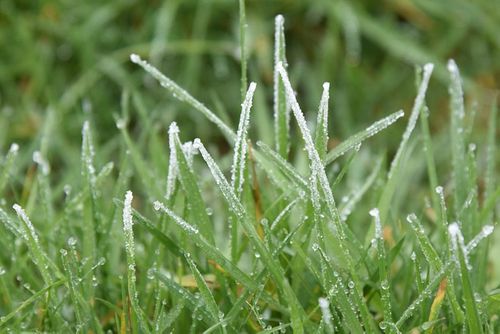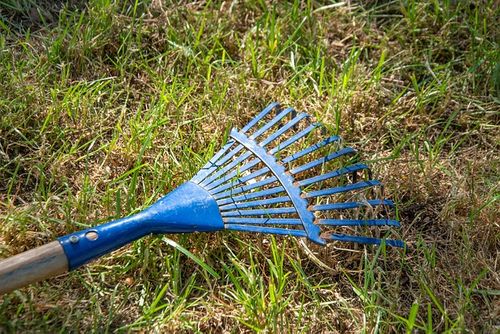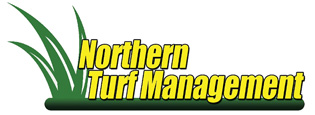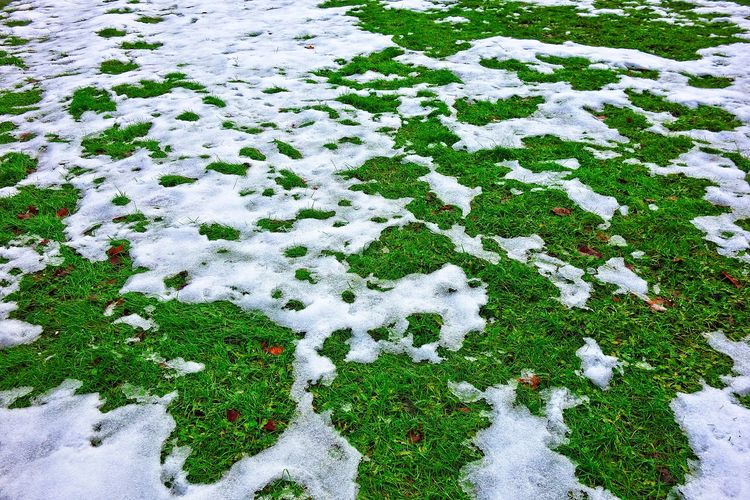Since spring is in the air, I’m sure many of you are getting outside after another Maine winter to work in your yard. Of course, the need to clean up your lawn from the effects of our winter season is inevitable. However, a few words of caution are in order before discussing specifics about getting your lawn ready for the growing season. Read on to learn about some of my top spring lawn care tips for your yard cleaning.
BE PATIENT, DON’T GET OUT TOO EARLY
Before you start spring cleaning, you want to be sure you don’t jump the gun and get out too early. Why do I say this? At this time of year, the snowpack is melting rapidly, and precipitation is usually abundant. All of this adds up to very wet soils. In addition to being downright messy, working on wet soils can cause several other problems for your turf:
- Soil compaction: Anytime you are on your lawn, you cause at least some level of compaction. However, this effect is magnified on wet soils because soil particles are more easily squished together, and valuable pore space is quickly lost.
- Plants pulling from the ground: Wet soils are looser and more workable by nature. Combine this feature with turfgrass plants damaged from winter injury, and these plants can easily be removed from the soil through raking and power brooming.
- Frost: We all know that even in late spring, cold temperatures and frost can still pop up unexpectedly. It is critical not to be on turf when it is frosted. Any traffic, even from footprints, can push the ice crystals directly into the turfgrass leaves and cause injury or plant death.

SPRING LAWN CARE TIPS
The big take-home point from the above information is to simply wait for your lawn to dry out before doing any serious cleanup work. Once soils have dried out, following these basic guidelines will put your lawn in good shape for the upcoming growing season:
- Clean up all debris that has accumulated on your lawn throughout the winter. This includes all gravel, salt, broken branches, and leaves. Not only does a thick layer of debris on your lawn look unsightly, but it can also prevent spring fertilizer and control product applications from working correctly. Pay particular attention to excessive salt and gravel buildup along roadside edges, as this can cause soil quality issues over time and promote weed encroachment.
- Look out for blighted, circular matted grass patches. These areas can be gray, tan, or pink and resemble spider webs. These conditions are known as snow molds and are common turf diseases to occur after snowmelt. Most can be corrected by thoroughly raking the affected turf. However, severe damage may have to be resodded or reseeded.
- Pay special attention to areas damaged by snow removal activities. Most of the time, this damage looks like sod rolled back to expose bare soil. The issue can usually be remedied by pulling back the grass and tucking it into place. Many times, seemingly dead turf will rebound. If not, however, it should be repaired sooner than later, as bare soil is a favorable environment for weed development.
- Rake matted lawn patches thoroughly. While it’s unnecessary to aggressively rake or dethatch your entire lawn, areas matted down or covered with leaves all winter could benefit from light hand raking. Larger areas can be taken care of with power rakes or brooms while using caution not to dig into the soil profile and instead keeping the apparatus on the surface.

NEXT STEPS FOR THE GROWING SEASON
Spring cleanup is essential to your turfgrass’ health as we enter the new growing season. The soil and your grass can be susceptible to environmental changes, so it’s essential to approach spring cleaning carefully. Plus, it’s the perfect time to keep an eye out for winter diseases. If you’ve followed this basic advice, your lawn should be more than ready to thrive as it comes out of dormancy and transitions into the new growing season!
Northern Turf Management is proud to provide residents of Maine with expert lawn care services this spring. To learn more about our turf management services, please call our team in Cyr Plantation and Caribou at (207) 544-9420 or contact us here.

